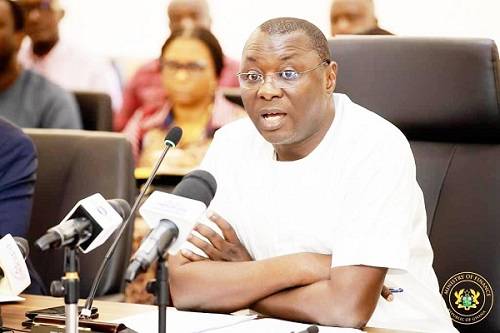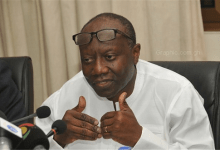
Ghana is expected to receive about US$360 million from the International Monetary Fund (IMF) following a staff-level agreement reached between the government and staff of the Fund.
However, this agreement, which is on the second review of the country’s economic programme under the US$3 billion Extended Credit Facility arrangement, is subject to IMF’s management approval and executive board consideration once the necessary financing assurances are received.

At a joint press conference in Accra on Saturday, the IMF Mission Chief for Ghana, Stéphane Roudet, said, “An agreement between the Ghanaian authorities and their official creditors on an MoU for a debt treatment in line with programme parameters would provide the needed financing assurances.
“Upon completion of the Executive Board review, Ghana would have access to SDR 29.1 million (about US$360 million), bringing the total IMF financial support disbursed under the arrangement since May 2023 to SDR 1,171.9 million (about US$1,560 million),” he said.
The press conference was to provide an update on a series of meetings held from April 2 to 12, between government representatives and an IMF staff team led by Mr Roudet in Accra to discuss progress on reforms and the government’s policy priorities in line with the second review of Ghana’s three-year programme under the $3 billion Extended Credit Facility approved by the IMF executive board on May 17, last year.
Mr Roudet said the government had made improvements on reforms since the last review.
“Performance under the IMF-supported programme has been generally strong, with most quantitative targets met. Good progress has also been made on the key structural reform milestones. The authorities’ policies and reforms to restore macroeconomic stability and debt sustainability while laying the foundations for stronger and more inclusive growth are already generating positive results.
“Economic activity in 2023 was more robust than initially envisaged, and growth projections for 2024 will be revised upward. Monetary policy has remained appropriately tight, allowing for inflation to decline rapidly,” he said.
In adherence to the commitments made under the IMF-supported programme, Mr Roudet said Ghana saw a notable improvement in the fiscal primary balance by over four percentage points of GDP in 2023, and that the country was expected to achieve a fiscal primary surplus of ½ per cent of GDP in 2024, demonstrating continued progress on fiscal targets outlined in the programme.
He said spending had remained within budget limits, social protection programmes had been expanded to cushion the vulnerable, non-oil revenue mobilisation target met, while there was progress made in implementing ambitious structural fiscal reforms to bolster domestic revenues, strengthen public financial and debt management, and enhance transparency.
“The external sector has improved significantly, with international reserve accumulation ahead of programme objectives. Financial stability has been preserved, with banks posting solid profits in 2023.
“Given Ghana’s strong progress under the IMF-supported programme, the next key step for the country is to reach an agreement with its official bilateral creditors on an MoU consistent with the terms agreed in January 2024. We look forward for the authorities’ continued efforts to reach an agreement with all creditors in line with programme parameters,” he said.
The Minister of Finance, Dr Mohammed Amin Adam, stated the government’s commitment to continue implementation of the policies under the programme to sustain the gains made in line with the government’s determination to turn around the economy.
He said the government would address challenges in the energy and cocoa sector by employing various strategies, including energy sector audit, review of PURC tariff setting methodology and cost cutting measures in the cocoa sector.
On the external debt restructuring, he said negotiations were ongoing with international bondholders and that a deal is expected to be reached at some point.
With election about eight months away, he promised to keep government expenditure in check to aid the effective implementation of the IMF programmes.
BY JONATHAN DONKOR







